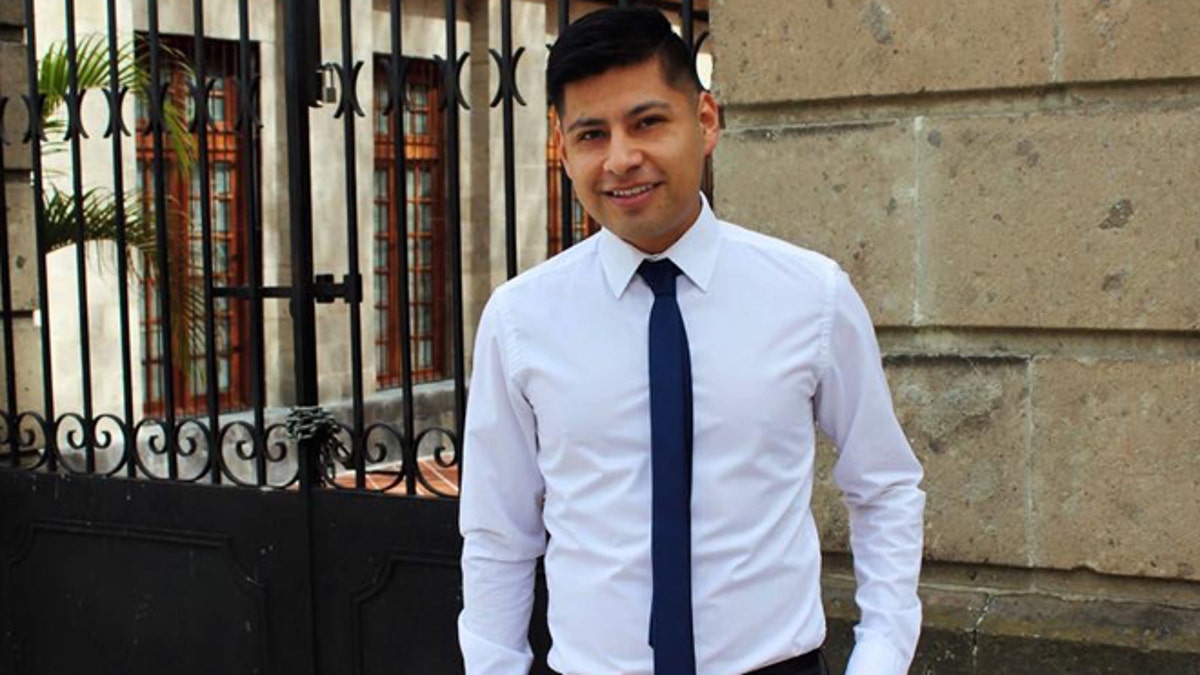
Not every undocumented immigrant who comes to the United States sees the country as a panacea.
Bernardino Hernandez grew up in the United States after his parents left Oaxaca, Mexico for California when he was a toddler. The son of farm workers graduated college and then, in 2010, found himself with few options because of his immigrant status – so he made a drastic choice. He self deported.
“My parents were in total shock when I told them I was going back to Mexico after college,” Hernandez told Fox News Latino. “My dad gave me $1,000 dollars and told me he refused to pay a coyote to bring me back.”
This over-achieving American kid – who lettered in cross country in high school and was involved in the Nutrition Club, the Spanish Honors Society, the Math Engineering Club, had a 4.0 GPA throughout high school and who received a bachelor’s degree from University of California-Davis – eventually did achieve his American dream.
But he found it in Mexico.
In the U.S., Hernandez had a tough time getting into graduate schools because of his immigration status. He graduated college in 2010, two years before President Barack Obama’s administration launched an immigration program that would give young people like Hernandez work permits and a reprieve from deportation. Those who could apply were undocumented children who lived in the U.S. for more than five years, with no criminal records and some education or military service.
So he attended graduate school in Canada, spent a few months in Colombia and then returned triumphantly to Mexico City, where he started a thriving business.
In 2015, Hernandez launched QuickTrans, a translation company.
“The company is doing really well," he says. "We offer over 20 languages to local and businesses from oversees who want both their products and their content translated into Spanish, in order to expand in Latin America. We partner with many organizations as their primary vendor."
Hernandez is one of half a million young people who’ve returned to Mexico either by choice or by deportation since 2005.
A number (over 500) of them belong to a Facebook group. They call themselves “Los Otros Dreamers.” The page is a resource students recently deported or those who chose to exile to Mexico use to find support and solace
“Many of 'Los Otros Dreamers' are my friends," Hernandez says. "I wanted to help other Dreamers by using their bi-lingual expertise to conduct translation. Many of other Dreamers end up at call-centers, and rather than seeing that as a career, and the centers take advantage of their bi-lingual skills. They’re not paying well, and it’s too many hours interpreting. Their services can be used in better ways."
As for the U.S., he says, someday he’d like to develop his business there.
“For now, I’m focusing on the LatAm region,” he said.
Hernandez has also convinced his parents to move back to Mexico. They’ve opened a construction business in their hometown of Oaxaca, where Hernandez’s dad serves as a health official. He recently ran for mayor of the small town of two thousand people, but lost his bid.
“My summers and weekends were spent working on the farm in Central Valley," he says. "Once I was in Mexico, I thought nothing can be as hard as working in the fields. If I can do that work, I can certainly make a career for myself."
